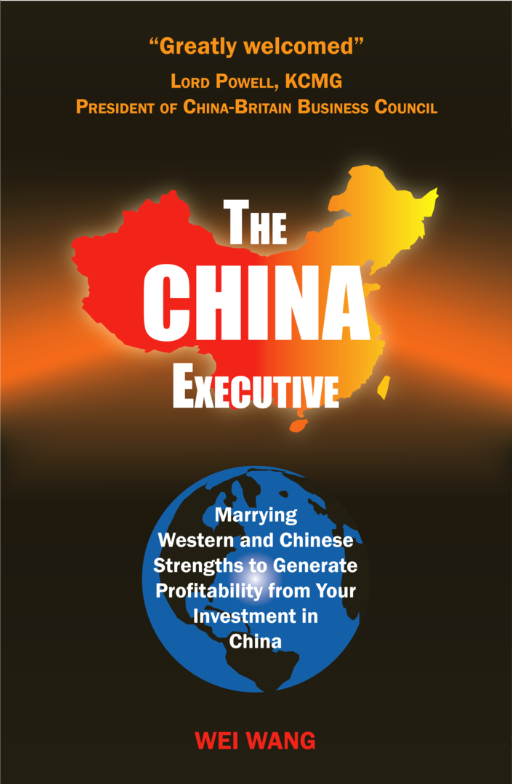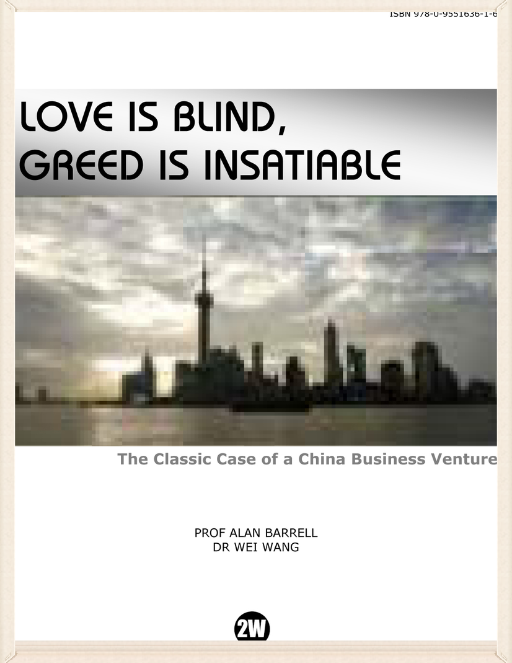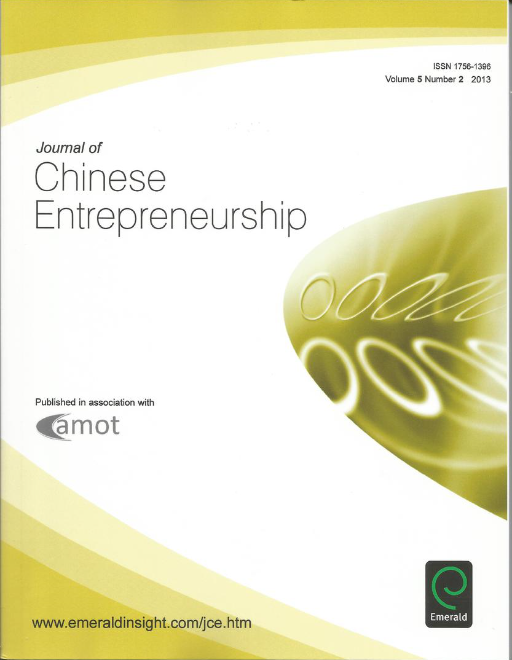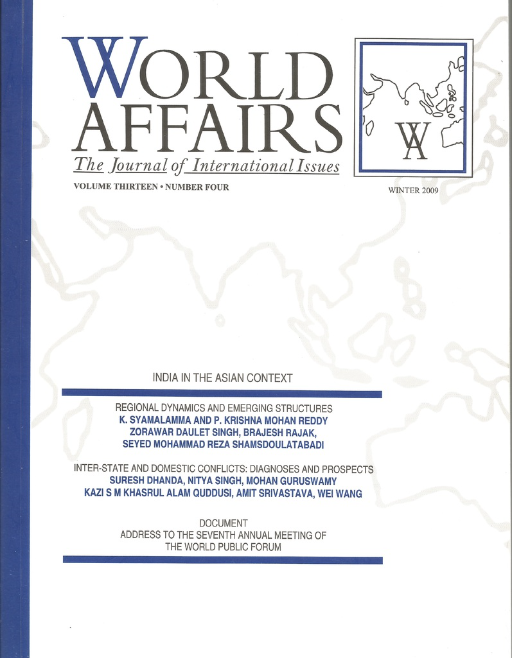
Publications
Description
Since 1979, China has attracted over US$500 billion foreign direct investment. Yet making an investment in China is not only the biggest business phenomenon, but also the most challenging business
task in the world. In this landmark book, Dr Wei Wang, a leading expert on China investment with extensive managerial work and international experience, and intimate knowledge of both Western and
Chinese cultures and histories, tackles this phenomenal challenge right at its heart. He shows that the key reason for the many failed or under-performed China ventures is that foreign investors have
been conducting a "love affair" with China, with a deep understanding of China giving way to the attraction of a market of 1.3 billion people. To succeed, foreign investors should aim to live a
"family life" with China, emphasising building a long-term relationship and a capacity to weather the ups and downs in the relationship.
By examining Sino-Western joint ventures, the most complex and challenging of all business arrangements that are in a sense an engagement of 2,500 years of almost oppositely developed Western and
Chinese civilisations, The China Executive provides an inside-out, human-centred perspective on what it takes to achieve business success in China: from stepping into the networked society, reading
the dynamics of the China market, approaching and selecting a partner, and negotiating with a potential partner, through to bridging communication gaps, training local staff, leading the Chinese, and
balancing managing and leading. Packed with anecdotes, pictures, and above all, wisdom, the book is easily accessible and highly practical.
Using China as a reference point, The China Executive also illuminates the limitations of the Western view of business, and offers existing and potential executives worldwide the definitive guide to
developing a global view of business in the 21st century, including the integration of results and relationships, of analysis and intuition, and of competition and co-operation. The book concludes
that the secret of global business success lies in taking a higher worldview by combining a Western things-oriented, divided worldview with a Chinese human-centred, integrated worldview, and
mastering global business by combining modern Western management excellence with ancient Chinese leadership wisdom.
Media Reviews
Business Voice, the CBI magazine, September 2006, reviewed by Stefan Stern, management columnist, the Financial Times: "Wang offers sound advice to business leaders planning
on making the long march east… [A] timely, well-informed book." The magazine is circulated to over 30,000 senior business leaders in the UK. Click to download the full review.
China-Britain Business Review, September 2006: "Systematic and eminently sensible… [A] helpful exposition of the need to balance Western and Chinese business methods."
Financial Management, the CIMA magazine, December/January 2006/07, reviewed by Charles Tilley, chief executive, CIMA: "This book seeks to identify the many differences in
how organisations are managed in the west compared with those in the east - in particular, differences in the management and leadership of people. Personally, I do not draw this distinction, because
I believe that the success of any enterprise depends substantially on how it manages its people. But Wei Wang does provide advice on how to relate to specific situations in China - 'face', for
example - which is extremely worthwhile. For this reason alone The China Executive would be a valuable reference guide."
Customer Reviews
Amazon.com, 31 October 2008, reviewed by Joseph J. West, Dean, School of Hospitality and Tourism Management, Florida International University, Miami, FL, USA: "I am now in my 6th year of running an enterprise in Tianjin, PRC. I wish I had had this book in the beginning, it would have saved a lot of grief. I can vouch for its usefulness to the manager entering China for the first time or anyone else, even an "old China hand" such as I. This is one of two books I highly recommend for anyone interested in doing business in China. I have ordered a book for both of my associate deans." [FIU is the first American university to partner with the Chinese government to deliver university education in Tianjin.]
USA-based We Connect to China: "Having studied and worked both in China and the West, Wang is one of the few truly bi-cultural persons who understands how and why the Chinese think and behave differently from the Westerners. The book offers practical guide to solve the cultural divide between China and the West. This is an outstanding book that combines theories with practical solutions to do business in China and beyond."
London-Based Plus Partnership: "Global leaders in the 21st century will be doing business in China, so whether you are looking for business partners or joint ventures, or are coaching or developing business people with Chinese connections or teams, this is an invaluable title for your cross-cultural bookshelf. As well as giving an insight into the new face of China, it also looks at cultural issues for business people and, in the words of Wei Wang’s own website, fills the gap between a business school education and the China business reality. Tip: build common business goals if you want your business to succeed."
Love Is Blind, Greed Is Insatiable: The Classic Case of a China Business Venture
Abstract
An MBA graduate, originally from China, joined a multi-billion pound sterling British multinational in the late 1990s to assist its senior executives to make multi-million dollar investments in
China. He had been involved in the whole decision-making process, consisting of assessing business opportunities and potential partners in China through to establishing and operating a US$ 25 million
pharmaceutical joint venture business.
With vivid accounts of what he had experienced, he reveals that it is human intuition - including the pain and the joy as well as the misery and the hope - that makes up the very fabric of business.
In the end, it is a story that shows why business conducted on the basis of partner attraction and for the sole purpose of making money is self-defeating, and why successful business is done not only
through people but also for people.
Learning Objectives
The principal objective is to help students understand the nature of business, in particular with reference to doing business in China. The other objective is to help them develop an appreciation of
how business school-taught concepts and tools might be applied to the messy reality of business.
Subjects Covered
Networking, market research, business alliance, negotiation, business case, management, leadership, business strategy and worldview
Setting
Late 1990s; China, the UK, and the starch industry
To download the eBook: go to the website of 2W Publishing Ltd.
Entrepreneurship and strategy in China: Why 'Porter's five forces" may not be
Purpose
Challenging the suitability of “Porter's five forces” as a guide to strategy and entrepreneurship in China and in the global age at large, this paper aims to present a new “five forces” model based on Sun Tzu's timeless strategic wisdom, with entrepreneurship and “collaborative innovation” right at its heart.
Design/methodology/approach
The arguments and the new model are developed, drawing on results from a survey among entrepreneurs and executives operating in China, the direct experience of top entrepreneurs, authoritative information from publishers like the Financial Times and Business Week, the consensus at the 2008 Annual Conference of the World Economic Forum, and Sun Tzu's timeless strategic insights.
Findings
The survey among entrepreneurs and executives operating in China shows that “Porter's five forces” has had little impact on business practice in China. One author, a serial entrepreneur, has considered ren shi qian or three Ps (people, project and penny) as the strategic forces driving his ventures in China. Going beyond the narrow, extremely competitive focus of Porter's model, the new “five forces” model, consisting of business purpose, business location, business climate, business organisation and business leader, is shown to determine business success. And, as the central strategic force, business leaders have to embrace entrepreneurship and “collaborative innovation” with their hearts to navigate any challenging economic waters.
For more information on the article, click Emerald.
Confucianism and the Solution to the Tibet Problem
Abstract
The article looks at the situation of Tibet and the position of the Dalai Lama from the standpoint of Confucian ethics and the Buddhist "Middle Way" in order to find a solution to the problem. While acknowledging the legitimate grievances and aspirations of Tibetans, the author argues that the outside world plays an often negative role by seeking to interfere on the basis of subjective opinions and unverified assumptions. It urges the Chinese government to reach an agreement with the exiled Tibetan pontiff so that the latter may come back permanently to his country.
Excerpt
China, as a subject, has come of age.
One sure sign of this is the BBC’s dedication of its sixtieth anniversary of Reith Lectures, with Yale Professor of History Jonathon Spence, one of the world’s leading authorities on China, as the lecturer and “guide”, to making sense of China, from the days of Confucius to the most recent events of Beijing Olympics and Sichuan earthquake.
The BBC inaugurated the Reith Lectures in 1948 to mark the historic contribution to public broadcasting by Sir John (later Lord) Reith, the corporation's first director-general. Each year, the BBC invites a leading figure to deliver a series of lectures on radio to advance public understanding and debate about a significant contemporary issue.
In his second lecture, entitled English Lessons, Spence quoted the following words from Citizen of the World, a novel written by Oliver Goldsmith in the 18th century, to illustrate how a Chinese might feel about the British:
“You know, I think these British people are trying to reason me out of my own country. They’re trying to push their pressure on me to get me to lose my sense of what it is to be Chinese.”
...
文化与管理的实践 (The Practice of Culture and Management)
中文摘要
世界上大多数大学商学院在跨文化管理领域的教学主要以霍夫斯泰德(Hofstede)的五个维度文化理论作为指导。这个案例通过一名名叫卫晓明的来自中国的英国大学MBA毕业生在90年代后期在一个英国跨国公司决策核心参与在中国建立和运作一个总投资近两千万美元的合资企业的丰富经历揭示了霍夫斯泰德模型过于抽象化和简单化的局限性。
通过使用本案例,老师可激发学生领悟国际商务活动中文化的深度、复杂、能量、生命和幽默,进而创造性地探讨可行动的、有实效的跨文化管理策略和方法。
Abstract in English
Teaching cross cultural management at most university business schools around the world relies on Hofstede’s five-dimensional model as a theoretic guide. Through the rich experience of a China-originated MBA graduate called William in participating in a British multinational’s activities to establish and operate a multi-million dollar joint venture in China in the late 1990s, this case illuminates the overly abstract and simplistic nature of Hofstede’s model.
By using this case, the teacher can stimulate the students to sense the depth, complexity, energy, life and humour of culture in international business activities, and thereby to creatively explore actionable, effective cross cultural management strategy and methods.
作业问题
- 通过本案例反映出来的中国人与英国人的差异,并结合自己的学习和生活经历,分析和阐述霍夫斯泰德(Hofstede)的五个维度文化理论里有关中英文化差异的误区和缺陷。
- 结合自己对西方文化的理解,总结本案例所反映出来的英国企业文化的特点,并分析本案例所涉及的英国公司(BC)在投资决策过程方面有哪些需要改进的地方。
- 结合自己对中国企业(特别是国营企业)的了解,分析本案例所涉及的中国企业(CC)在领导艺术方面有何优秀、独到之处,以及其管理方法上有哪些会阻碍其走上国际舞台。
- 假定你是被EC总部派来检查本案例中的合资企业的一名董事,请从宏观角度对合资企业所处的处境做一个客观的总结,并提出一个改善这一处境的行动方案。
For sample pages of the article, go to Clients.





